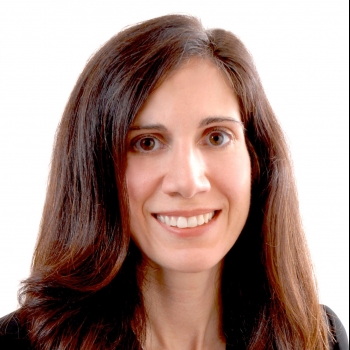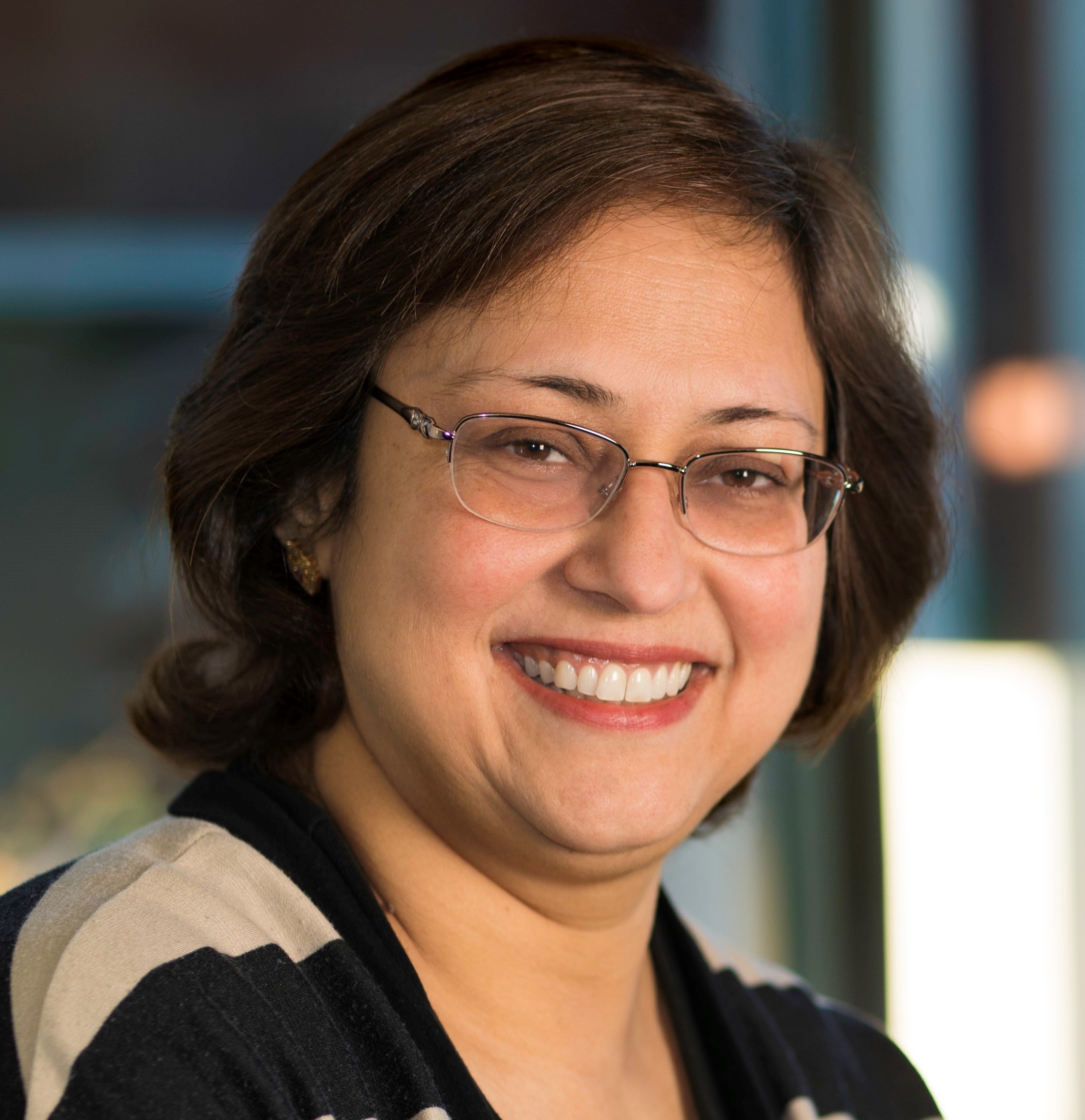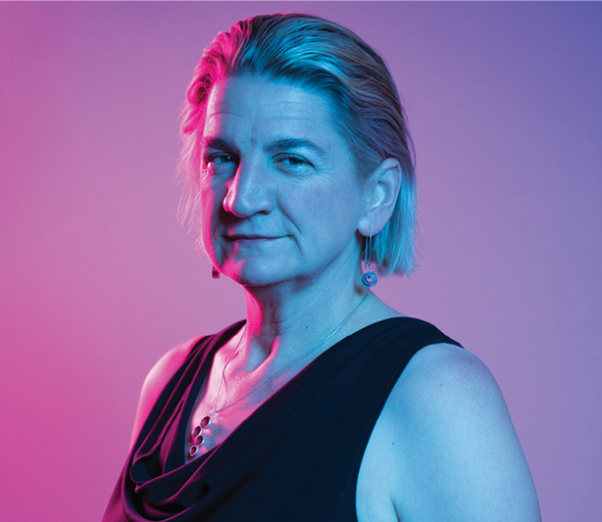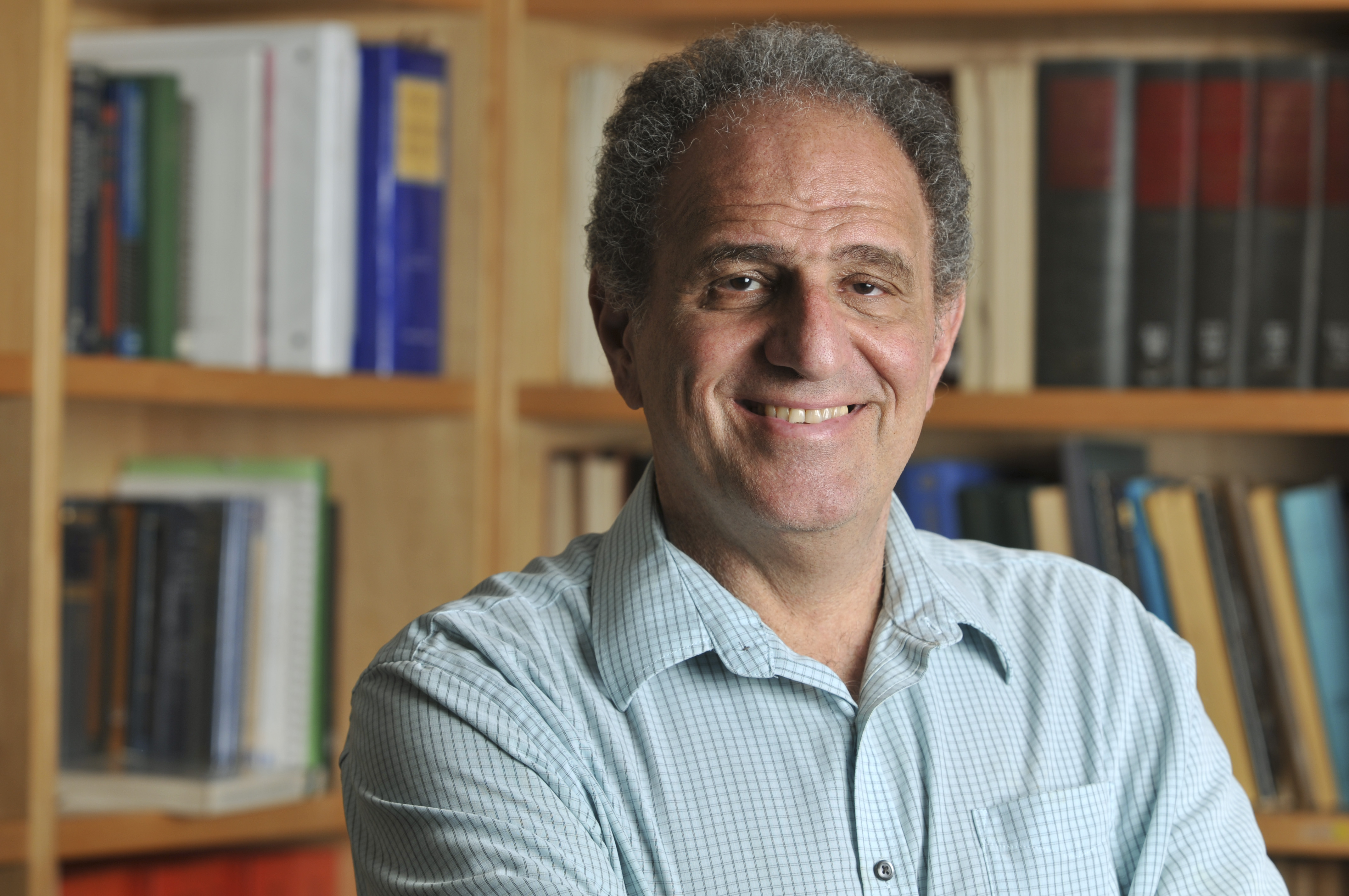Keynote Sessions
Keynote Sessions and Opening Remarks:
+ Opening Remarks(8:30 AM-8:45 AM, May 16, 2025 )
+ Keynote Session 1 Chair
+ Reimagining Clinical Trials: How AI is Redefining Biostatistics and Drug Development (8:45 AM - 9:45 AM, May 16, 2025)
+ Keynote Session 2 Chair
+ Large language models for cancer diagnosis and medical discovery (8:30 AM - 9:30 AM, May 17, 2025)
Opening Remarks
8:30 AM-8:45 AM, May 16, 2025
Chair: Ying Lu, Stanford
Speaker: Steven Artandi, Stanford; Sylvia Plevritis, Stanford.
 Ying Lu, Ph.D., is Professor in the Department of Biomedical Data Science, and by courtesy in the Department of Radiology and Departement of Health Research and Policy, Stanford University. He is the Co-Director of the Stanford Center for Innovative Study Design and the Biostatistics Core of the Stanford Cancer Institute. Before his current position, he was the director of VA Cooperative Studies Program Palo Alto Coordinating Center (2009-2016) and a Professor of Biostatistics and Radiology at the University of California, San Francisco (1994-2009). His research areas are biostatistics methodology and applications in clinical trials, statistical evaluation of medical diagnostic tests, and medical decision making. He serves as the biostatistical associate Editor for JCO Precision Oncology and co-editor of the Cancer Research Section of the New England Journal of Statistics and Data Science. Dr. Lu is an elected fellow of the American Association for the Advancement of Science and the American Statistical Association. Dr. Lu initiated the Stat4Onc Annual Symposium with Dr. Ji and Dr. Kummar in 2017 and is the PI of the R13 NCI grant for this conference.
Ying Lu, Ph.D., is Professor in the Department of Biomedical Data Science, and by courtesy in the Department of Radiology and Departement of Health Research and Policy, Stanford University. He is the Co-Director of the Stanford Center for Innovative Study Design and the Biostatistics Core of the Stanford Cancer Institute. Before his current position, he was the director of VA Cooperative Studies Program Palo Alto Coordinating Center (2009-2016) and a Professor of Biostatistics and Radiology at the University of California, San Francisco (1994-2009). His research areas are biostatistics methodology and applications in clinical trials, statistical evaluation of medical diagnostic tests, and medical decision making. He serves as the biostatistical associate Editor for JCO Precision Oncology and co-editor of the Cancer Research Section of the New England Journal of Statistics and Data Science. Dr. Lu is an elected fellow of the American Association for the Advancement of Science and the American Statistical Association. Dr. Lu initiated the Stat4Onc Annual Symposium with Dr. Ji and Dr. Kummar in 2017 and is the PI of the R13 NCI grant for this conference.
 Steven Artandi, MD, PhD is the Laurie Kraus Lacob Director of the Stanford Cancer Institute and the Jerome and Daisy Low Gilbert Professor of Medicine and Biochemistry at Stanford University. He also serves as the inaugural Senior Associate Dean for Cancer Programs for Stanford School of Medicine and the Chief Cancer Officer for Stanford Health Care. He received his undergraduate degree from Princeton University, and MD and PhD degrees from Columbia University. He trained in Internal Medicine at Massachusetts General Hospital and in Oncology at Dana-Farber Cancer Institute before joining the Stanford faculty in 2000. Dr. Artandi is an oncologist and cancer biologist whose research work has focused on the role played by the enzyme telomerase in cancer, aging and stem cell function. His work has produced new insights into the origins of cancer, revealing how telomerase endows cells with immortal growth properties and how aspiring cancers circumvent critical bottlenecks encountered during carcinogenesis. He has received a number of awards including an Outstanding Investigator Award from the National Cancer Institute and is an elected member of the American Association for the Advancement of Science, the American Society for Clinical Investigation and the Association of American Physicians. He serves on the Editorial Boards of the journals Molecular Cancer Research and Stem Cells.
Steven Artandi, MD, PhD is the Laurie Kraus Lacob Director of the Stanford Cancer Institute and the Jerome and Daisy Low Gilbert Professor of Medicine and Biochemistry at Stanford University. He also serves as the inaugural Senior Associate Dean for Cancer Programs for Stanford School of Medicine and the Chief Cancer Officer for Stanford Health Care. He received his undergraduate degree from Princeton University, and MD and PhD degrees from Columbia University. He trained in Internal Medicine at Massachusetts General Hospital and in Oncology at Dana-Farber Cancer Institute before joining the Stanford faculty in 2000. Dr. Artandi is an oncologist and cancer biologist whose research work has focused on the role played by the enzyme telomerase in cancer, aging and stem cell function. His work has produced new insights into the origins of cancer, revealing how telomerase endows cells with immortal growth properties and how aspiring cancers circumvent critical bottlenecks encountered during carcinogenesis. He has received a number of awards including an Outstanding Investigator Award from the National Cancer Institute and is an elected member of the American Association for the Advancement of Science, the American Society for Clinical Investigation and the Association of American Physicians. He serves on the Editorial Boards of the journals Molecular Cancer Research and Stem Cells.
 Dr. Sylvia K. Plevritis is the William M. Hume Professor in the School of Medicine, Professor of Biomedical Data Science and of Radiology and Chair of the Department of Biomedical Data Science at Stanford University. She leads a systems biology cancer research program that bridges multiomic, imaging, clinical and population data to decipher properties of cancer progression and drug response. Dr. Plevritis received her Ph.D. in Electrical Engineering and M.S. in Health Services Research, both from Stanford University, with a focus on cancer imaging physics and modeling cancer outcomes, respectively. She is a fellow of the American Institute for Medical and Biological Engineering (AIMBE) and Distinguished Investigator in the Academy of Radiology Research. Dr. Plevritis has served on numerous NIH study sections, chaired scientific programs for the several professional societies including the American Association for Cancer Research (AACR) and presented keynote lectures across multiple scales of computational cancer biology. She served on NCI Board of Scientific Advisors from 2016-2024. She is actively serving as Associate Director for Cancer AI in the Stanford Cancer Institute.Sylvia Plevritis is the Program Director of the Stanford Center in Cancer Systems Biology (CCSB), and is a Principal Investigator with the NCI Cancer Intervention Surveillance Network (CISNET).
Dr. Sylvia K. Plevritis is the William M. Hume Professor in the School of Medicine, Professor of Biomedical Data Science and of Radiology and Chair of the Department of Biomedical Data Science at Stanford University. She leads a systems biology cancer research program that bridges multiomic, imaging, clinical and population data to decipher properties of cancer progression and drug response. Dr. Plevritis received her Ph.D. in Electrical Engineering and M.S. in Health Services Research, both from Stanford University, with a focus on cancer imaging physics and modeling cancer outcomes, respectively. She is a fellow of the American Institute for Medical and Biological Engineering (AIMBE) and Distinguished Investigator in the Academy of Radiology Research. Dr. Plevritis has served on numerous NIH study sections, chaired scientific programs for the several professional societies including the American Association for Cancer Research (AACR) and presented keynote lectures across multiple scales of computational cancer biology. She served on NCI Board of Scientific Advisors from 2016-2024. She is actively serving as Associate Director for Cancer AI in the Stanford Cancer Institute.Sylvia Plevritis is the Program Director of the Stanford Center in Cancer Systems Biology (CCSB), and is a Principal Investigator with the NCI Cancer Intervention Surveillance Network (CISNET).
Keynote Session 1 Chair: Dr. Shivaani Kummar, Oregon Health & Science University
 Dr. Shivaani Kummar is Margaret and Lester DeArmond Chair of Molecular Oncology, interim Chief Executive of the Knight Cancer Institute, Division Chief of Hematology and Medical Oncology, co-Director of the Center of Experimental Therapeutics, Oregon Health & Science University, Portland, Oregon, USA. She specializes in conducting pharmacokinetic and pharmacodynamic driven first-in-human trials tailored to make early, informed decisions regarding the suitability of novel molecular agents for further clinical investigation. She is a member of scientific planning committees of national and international professional organizations and has authored over 180 peer reviewed publications, 10 book chapters, and co-edited a book on ‘Novel Designs of Early Phase Trials for Cancer Therapies’. She is currently a member of the American Association for Cancer Research Exploratory IND/Phase 0 Clinical Trials Task Force, and served as co-Chair of the Clinical Trials Committee, AACR Annual Meeting 2023-2024.
Dr. Shivaani Kummar is Margaret and Lester DeArmond Chair of Molecular Oncology, interim Chief Executive of the Knight Cancer Institute, Division Chief of Hematology and Medical Oncology, co-Director of the Center of Experimental Therapeutics, Oregon Health & Science University, Portland, Oregon, USA. She specializes in conducting pharmacokinetic and pharmacodynamic driven first-in-human trials tailored to make early, informed decisions regarding the suitability of novel molecular agents for further clinical investigation. She is a member of scientific planning committees of national and international professional organizations and has authored over 180 peer reviewed publications, 10 book chapters, and co-edited a book on ‘Novel Designs of Early Phase Trials for Cancer Therapies’. She is currently a member of the American Association for Cancer Research Exploratory IND/Phase 0 Clinical Trials Task Force, and served as co-Chair of the Clinical Trials Committee, AACR Annual Meeting 2023-2024.
Keynote 1: Reimagining Clinical Trials: How AI is Redefining Biostatistics and Drug Development
May 16, 2025
Speaker: Professor Shannon McWeeney, Professor, Oregon Health and Science University
Chem-H Rotunda E241
 Dr. Shannon McWeeney, Professor at Oregon Health and Science University (OHSU), is a methodologist working at the intersection of computer science, biostatistics and genetics to develop approaches to solve research bottlenecks and novel ways to visualize and interpret information. Her work on novel computational methods and frameworks for prioritization is one of her most significant contributions to science. While these methods were initially applied to precision medicine (cancer), they have wide applicability for target identification and therapeutic prioritization for many complex traits. In 2010, Dr. McWeeney was selected as a Kavli Frontiers Fellow by the US National Academy of Sciences for these contributions. Dr. McWeeney is the inaugural Chief Data Officer and Associate Director of Data Science for the OHSU Knight Cancer Institute and has a career-long commitment to data sharing and patient engagement. She served as a member of the Enhanced Data Sharing working group for the NCI Blue Ribbon Panel for White House Moonshot Initiative and as a member of the Biden Cancer Initiative Data Sharing and Patient Empowerment workstream. In 2020, she was named the Director of Medical Bioinformatics for the OHSU Knight Precision Oncology Program, in which she is responsible for the hardening and validation of assays, algorithms and models in the transition from research analytics to CLIA. She is a M-PI for OHSU’s NCI Acquired Resistance to Therapy Network (ARTNet), which arose from her collaborative work for over a decade as part of the OHSU BeatAML program. She is also an MPI for the NIH Bridge2AI AI-READi Salutogenesis Data Generation Project, collaboratively working to develop automated tools to accelerate the creation of FAIR (Findable, Accessible, Interoperable, and Reusable), CARE (Principles for Indigenous Data Governance) and ethically sourced data sets for machine learning and artificial intelligence.
Dr. Shannon McWeeney, Professor at Oregon Health and Science University (OHSU), is a methodologist working at the intersection of computer science, biostatistics and genetics to develop approaches to solve research bottlenecks and novel ways to visualize and interpret information. Her work on novel computational methods and frameworks for prioritization is one of her most significant contributions to science. While these methods were initially applied to precision medicine (cancer), they have wide applicability for target identification and therapeutic prioritization for many complex traits. In 2010, Dr. McWeeney was selected as a Kavli Frontiers Fellow by the US National Academy of Sciences for these contributions. Dr. McWeeney is the inaugural Chief Data Officer and Associate Director of Data Science for the OHSU Knight Cancer Institute and has a career-long commitment to data sharing and patient engagement. She served as a member of the Enhanced Data Sharing working group for the NCI Blue Ribbon Panel for White House Moonshot Initiative and as a member of the Biden Cancer Initiative Data Sharing and Patient Empowerment workstream. In 2020, she was named the Director of Medical Bioinformatics for the OHSU Knight Precision Oncology Program, in which she is responsible for the hardening and validation of assays, algorithms and models in the transition from research analytics to CLIA. She is a M-PI for OHSU’s NCI Acquired Resistance to Therapy Network (ARTNet), which arose from her collaborative work for over a decade as part of the OHSU BeatAML program. She is also an MPI for the NIH Bridge2AI AI-READi Salutogenesis Data Generation Project, collaboratively working to develop automated tools to accelerate the creation of FAIR (Findable, Accessible, Interoperable, and Reusable), CARE (Principles for Indigenous Data Governance) and ethically sourced data sets for machine learning and artificial intelligence.
Abstract
The integration of artificial intelligence into oncology clinical trials is revolutionizing every phase of drug development, from patient stratification to regulatory decision-making, while addressing longstanding limitations in traditional biostatistical frameworks. This keynote explores how AI-driven innovations are reshaping precision oncology and emphasizes the urgent need for a cultural shift to prevent the marginalization of biostatisticians. Their expertise in experimental design, ethical data governance, and causal inference is essential to ensure AI models produce clinically valid and equitable outcomes. At the same time, this paradigm shift requires temperance in adopting AI, with a focus on understanding its limitations, ensuring its appropriate application, and avoiding the pitfalls of overhyped expectations. By fostering proactive engagement with emerging technologies and cultivating transdisciplinary leaders, we can harness AI to drive transformative breakthroughs in oncology while maintaining rigorous standards that prioritize patient care and ethical integrity
Keynote Session 2 Chair: Dr. Ying Lu, Stanford
 Ying Lu, Ph.D., is Professor in the Department of Biomedical Data Science, and by courtesy in the Department of Radiology and Departement of Health Research and Policy, Stanford University. He is the Co-Director of the Stanford Center for Innovative Study Design and the Biostatistics Core of the Stanford Cancer Institute. Before his current position, he was the director of VA Cooperative Studies Program Palo Alto Coordinating Center (2009-2016) and a Professor of Biostatistics and Radiology at the University of California, San Francisco (1994-2009). His research areas are biostatistics methodology and applications in clinical trials, statistical evaluation of medical diagnostic tests, and medical decision making. He serves as the biostatistical associate Editor for JCO Precision Oncology and co-editor of the Cancer Research Section of the New England Journal of Statistics and Data Science. Dr. Lu is an elected fellow of the American Association for the Advancement of Science and the American Statistical Association. Dr. Lu initiated the Stat4Onc Annual Symposium with Dr. Ji and Dr. Kummar in 2017 and is the PI of the R13 NCI grant for this conference.
Ying Lu, Ph.D., is Professor in the Department of Biomedical Data Science, and by courtesy in the Department of Radiology and Departement of Health Research and Policy, Stanford University. He is the Co-Director of the Stanford Center for Innovative Study Design and the Biostatistics Core of the Stanford Cancer Institute. Before his current position, he was the director of VA Cooperative Studies Program Palo Alto Coordinating Center (2009-2016) and a Professor of Biostatistics and Radiology at the University of California, San Francisco (1994-2009). His research areas are biostatistics methodology and applications in clinical trials, statistical evaluation of medical diagnostic tests, and medical decision making. He serves as the biostatistical associate Editor for JCO Precision Oncology and co-editor of the Cancer Research Section of the New England Journal of Statistics and Data Science. Dr. Lu is an elected fellow of the American Association for the Advancement of Science and the American Statistical Association. Dr. Lu initiated the Stat4Onc Annual Symposium with Dr. Ji and Dr. Kummar in 2017 and is the PI of the R13 NCI grant for this conference.
Keynote 2: Large language models for cancer diagnosis and medical discovery
May 17, 2025
Speaker: Professor Robert Tibshirani, PhD
Stanford University
 Robert Tibshirani is a Professor of Biomedical Data Science, and of Statistics, at Stanford University. He has made important contributions to the statistical analysis of complex datasets. Some of his most well-known contributions are the Lasso, which uses L1 penalization in regression and related problems, generalized additive models and Significance Analysis of Microarrays (SAM). He also co-authored five widely used books ‘Generalized Additive Models’, ‘An Introduction to the Bootstrap’, ‘The Elements of Statistical Learning’, "An Introduction to Statistical learning", and ‘Sparsity in Statistics: the Lasso and its generalizations’. He is an active collaborator with many scientists at Stanford Medical school.Tibshirani received the COPSS Presidents' Award in 1996. Given jointly by the world's leading statistical societies, the award recognizes outstanding contributions to statistics by a statistician under the age of 40. He was elected a Fellow of the Royal Society of Canada in 2001, the National Academy of Sciences in 2012, and the Royal Society of Britain in 2019. In 2021 he received the ISI Founders of Statistics Prize for his 1996 paper Regression Shrinkage and Selection via the Lasso. In 2024 he received the COPSS Distinguished Achievement Award and WNAR/IBS Outstanding Impact Award.
Robert Tibshirani is a Professor of Biomedical Data Science, and of Statistics, at Stanford University. He has made important contributions to the statistical analysis of complex datasets. Some of his most well-known contributions are the Lasso, which uses L1 penalization in regression and related problems, generalized additive models and Significance Analysis of Microarrays (SAM). He also co-authored five widely used books ‘Generalized Additive Models’, ‘An Introduction to the Bootstrap’, ‘The Elements of Statistical Learning’, "An Introduction to Statistical learning", and ‘Sparsity in Statistics: the Lasso and its generalizations’. He is an active collaborator with many scientists at Stanford Medical school.Tibshirani received the COPSS Presidents' Award in 1996. Given jointly by the world's leading statistical societies, the award recognizes outstanding contributions to statistics by a statistician under the age of 40. He was elected a Fellow of the Royal Society of Canada in 2001, the National Academy of Sciences in 2012, and the Royal Society of Britain in 2019. In 2021 he received the ISI Founders of Statistics Prize for his 1996 paper Regression Shrinkage and Selection via the Lasso. In 2024 he received the COPSS Distinguished Achievement Award and WNAR/IBS Outstanding Impact Award.
Abstract
This will be a two-part talk. In the first paper, I introduce LLM-Lasso, a novel framework that leverages large language models (LLMs) to guide feature selection in Lasso ℓ1 regression. Unlike traditional methods that rely solely on numerical data, LLM-Lasso incorporate domain-specific knowledge extracted from natural language, enhanced through a retrieval-augmented generation (RAG) pipeline, to seamlessly integrate data-driven modeling with contextual insights., LLM-Lasso outperforms standard Lasso and existing feature selection baselines, all while ensuring the LLM operates without prior access to the datasets. To our knowledge, this is the first approach to effectively integrate conventional feature selection techniques directly with LLM-based domain-specific reasoning. Joint work with: Erica Zhang, Ryunosuke Goto, Naomi Sagan, Jurik Mutter, Nick Phillips, Ash Alizadeh, Kangwook Lee, Jose Blanchet, and Mert Pilanci
In the second part, my graduate student Min Woo Sun will present Biomedica, an open-source dataset derived from the PubMed Central Open Access subset, containing over 6 million scientific articles and 24 million image-text pairs, along with 27 metadata fields (including expert human annotations). To overcome the challenges of accessing our large-scale dataset, we provide scalable streaming and search APIs through a web server, facilitating seamless integration with AI systems. We demonstrate the utility of the Biomedica dataset by building embedding models, chat-style models, and retrieval-augmented chat agents. Notably, all our AI models surpass previous open systems in their respective categories, underscoring the critical role of diverse, high-quality, and large-scale biomedical data.
Joint work with Alejandro Lozano, James Burgess, Jeffrey J. Nirschl, Christopher Polzak, Yuhui Zhang, Liangyu Chen, Jeffrey Gu, Ivan Lopez, Josiah Aklilu, Anita Rau, Austin Wolfgang Katzer, Collin Chiu, Orr Zohar, Xiaohan Wang, Alfred Seunghoon Song, Chiang Chia-Chun, and Serena Yeung-Levy